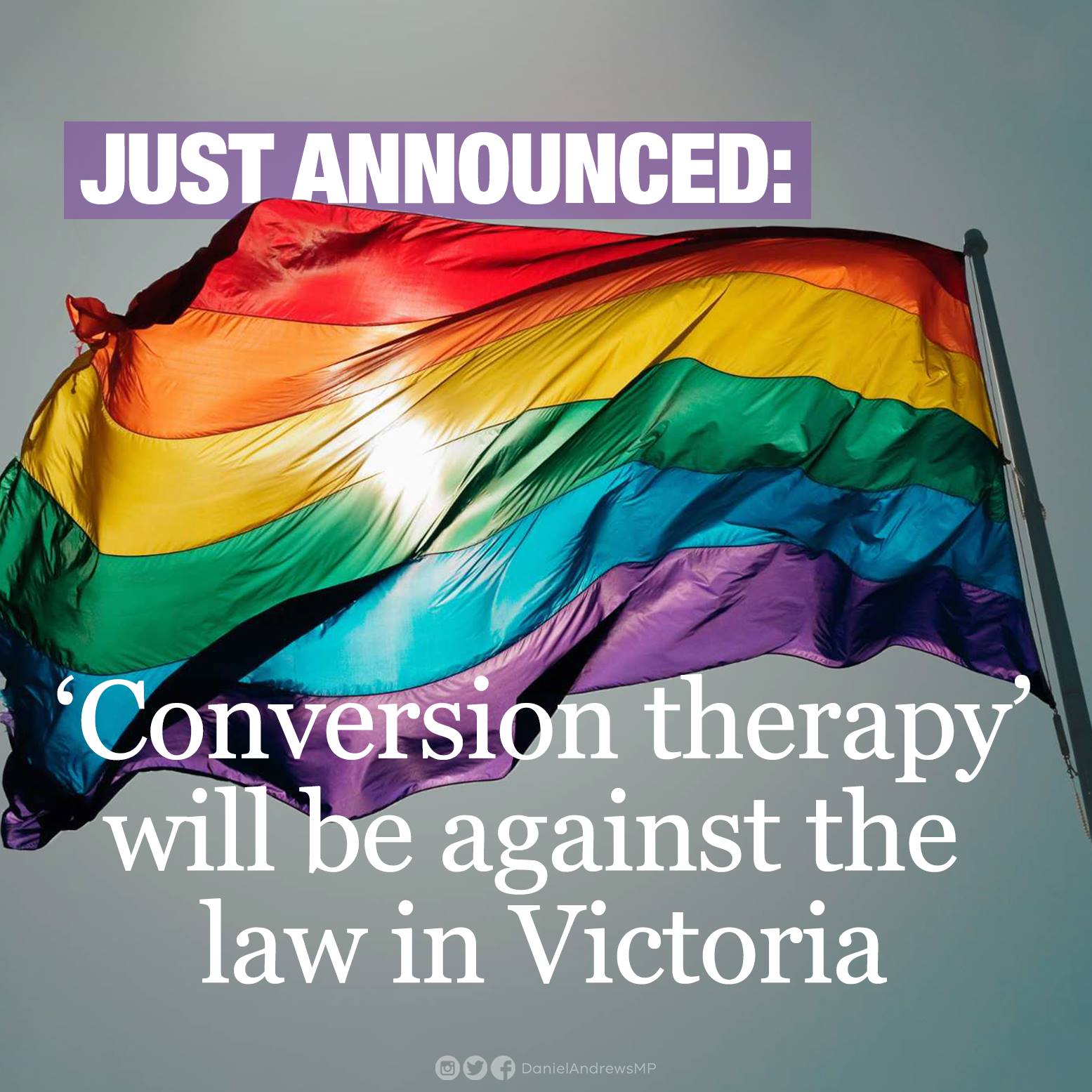Case study: Change or Suppression (conversion) Practices Prohibition Bill 2020.
On February 4 2021, the Victorian parliament passed the Change or Suppression (Conversion) Practices Prohibition Bill 2020 which limits practices directed at changing or suppressing a person’s sexuality or gender identity, including religious practices.
The law seeks to protect Victorians from, and respond to, the serious harm, trauma and potential long term mental health issues caused by change or suppression practices (also known as conversion practices). These practices are those directed at an individual with the aim of changing or suppressing a person’s sexual orientation or gender identity. These are practices which have no basis in medicine; there is no evidence that sexual orientation or gender identity can be ‘changed’. The laws include a civil response scheme established within the Victorian Equal Opportunity and Human Rights Commission (VEOHRC) to support survivors and address the harm they have endured.
The law aims to ensure that “Victorians are able to live their lives authentically with pride, and makes it clear an individual’s sexual orientation and gender identity are not “broken” and do not need to be “fixed”.
The definition of ‘change or suppression practices’ appears to have been carefully crafted, and is not designed to capture all religious practices or teachings or to prevent people seeking religious counsel. The Victorian law purports to carefully weigh the protection of religious freedom against the protection of the rights of LGBTQ+ people and is the product of significant consultation with survivors of the practices and with religious organisations.
Despite some commentator’s statements to the contrary, the law does not ban prayer, preaching or pastoral support about gender and sexuality in general. But it does prevent these spiritual practices being misused in attempts to change or suppress a person’s sexuality or gender identity and thereby causing them harm. It has been found to be consistent with Victorian human rights law and does not constitute an overreach.
Research conducted by LaTrobe University together with the Human Rights Law Centre in 2018, titled “Preventing Harm, Promoting Justice” found that religious practices are the most common type of practice that attempts to change or suppress a person’s gender or sexuality. Only a minority of participants had also experienced conversion practices at the hands of health professionals. The Victorian law accordingly does not merely limit the actions of registered health professionals, which has been the focus of similar laws in other jurisdictions including Queensland.
Dr Timothy W Jones, lead author of the “Preventing Harm, Promoting Justice” research, recently commented that “Rather than stoking unfounded fears, religious and opinion leaders should read the extensive work that has gone into the development and scrutiny of this world leading legislation”. We can only hope they do.
